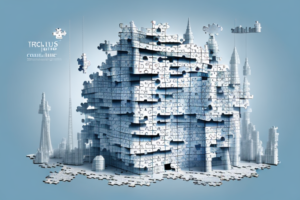There have been several AI tools lately, admitting that a lesser or negligible number of students knew about and used AI or such devices, but since the advent of ChatGPT, AI has breached almost every door. Creativity lies in oneself, and providing shortcuts might hinder creativity. However, one cannot deny that the definition of creativity has been dramatically altered in the present era; now, a creative brain might be unable to compete with the AI’s immediate response. So, one must utilize the resources and tools available to compete in the race. Let’s explore the impact of ChatGPT in fostering creativity and critical thinking among students, while considering its ethical implications.
How has the availability of AI language models like ChatGPT affected students’ understanding of originality and critical thinking?
On one occasion, Noam Chomsky said, “If students are relying on ChatGPT, it’s a sign that the educational system is failing”. And, “Our educational system is steering students toward ChatGPT and other shortcuts.”
These days, the availability of AI language models like ChatGPT has had mixed impacts on students’ understanding of originality and critical thinking. While these models can help students brainstorm, generate ideas, and take a straightforward approach to information, they can also make it easier for students to copy or plagiarize. If students get too dependent and are not careful enough, they can copy and paste ChatGPT-generated content without reading it, leading to less authenticity and creativity. Such students can get expelled from school or any institute, putting their future at stake.
How frequently have students used ChatGPT to generate their assignments, leading to potential plagiarism issues?
Since December 2022, a concerning trend has emerged where students consistently submit assignments on time, but upon examination, it becomes evident that many of these assignments exhibit striking similarities. Furthermore, the references provided often need to be more accurate, with approximately 60% being incorrect. Subsequent plagiarism checks reveal instances of academic dishonesty. Students must invest the necessary effort to thoroughly engage with the content instead of simply copying and pasting.
According to Forbes magazine, in a survey performed in January 2023, it was observed that 90% of students knew about ChatGPT, and 89% of them used it for their homework assignments.
Are students more likely to plagiarize using AI language models like ChatGPT? Why or why not?
Students are more likely to plagiarize when utilizing AI language models like ChatGPT. This is because such models make copying and pasting text very easy. Further, students are not taught the guidelines in schools about using such tools, so they are unaware of the ethical implications of using models like ChatGPT.

Are there specific guidelines for students using ChatGPT to ensure originality in their work?
Yes, a student needs to follow a set of guidelines to ensure that the content generated is authentic and correct because ChatGPT might produce incorrect information sometimes. A student must not rely solely on ChatGPT. They need to follow the following rules:
- Be mindful of ChatGPT’s limitations: Admitting that ChatGPT is a powerful tool, yet it is known that it is not free from certain flaws. This tool might need to provide the correct references.
- ChatGPT should be used as a guide only: ChatGPT is a helpful tool for brainstorming and generating ideas, but it is recommended to research the content it produces.
- Be sure to reference your sources: You still need to cite your sources even if you came up with your ideas using ChatGPT. This will ensure that your work is original and that you properly cite the original pictures’ authors.
- Use a plagiarism Checker tool: Remember to check whether the content generated by ChatGPT is plagiarized or not by using a plagiarism checker tool.
What steps can be taken to educate students about the responsible use of AI language models and prevent plagiarism in their academic work?
Every problem has a solution, and numerous steps can be taken to prevent plagiarism. The education and awareness of students about the responsible and ethical use of AI language models in their academic work is the first step to avoiding mishaps. The below steps should be taken further:
- Students should be educated about the definition of plagiarism and the ethical implications of using AI language models like ChatGPT.
- Students should be taught about the proper use of AI language models and how to cite their sources properly.
- Clear plagiarism policies and consequences should be enforced.
- A plagiarism detection program should be used to check if the content is plagiarized.
Protect academic integrity by using an AI writing detection solution designed for educators.
I recommend the following tools to assess the originality of the work:
Conclusion
It is crucial to prioritize education and awareness when it comes to addressing plagiarism. By educating students about the definition of plagiarism and the ethical implications of using AI language models like ChatGPT, we can instill a sense of responsibility and integrity in their academic work. Teaching them about the proper use of AI language models and how to properly cite sources will further equip them with the necessary skills to avoid unintentional plagiarism. By implementing these measures, we can create an environment that promotes honest and original work while minimizing the occurrence of mishaps related to plagiarism.
______________________________________
Related Blogs:
The ChatGPT and How to Use It for Content Marketing
AI-Powered Data Analysis Tools: A Comparison of the Best Solutions on the Market
Integrating AI-Powered Data Analysis Tools into Digital Agencies
______________________________________
References:
ChatGPT and Plagiarism: Academic Authenticity: https://quillbot.com/blog/chatgpt-and-plagiarism/
The Impact of ChatGPT on Academic Integrity: https://www.enago.com/thesis-editing/blog/the-impact-of-chatgpt-on-academic-integrity
https://mymodernmet.com/noam-chomsky-chat-gpt/
The Impact of AI Language Models on Academic Integrity and Student Plagiarism









